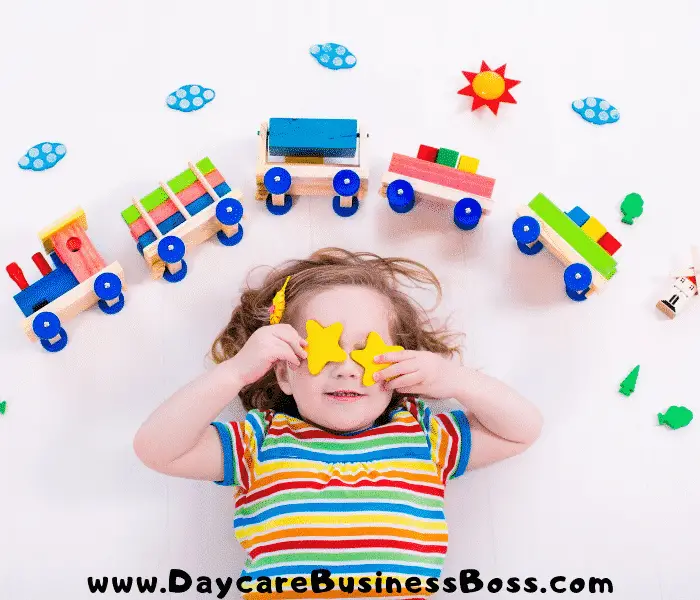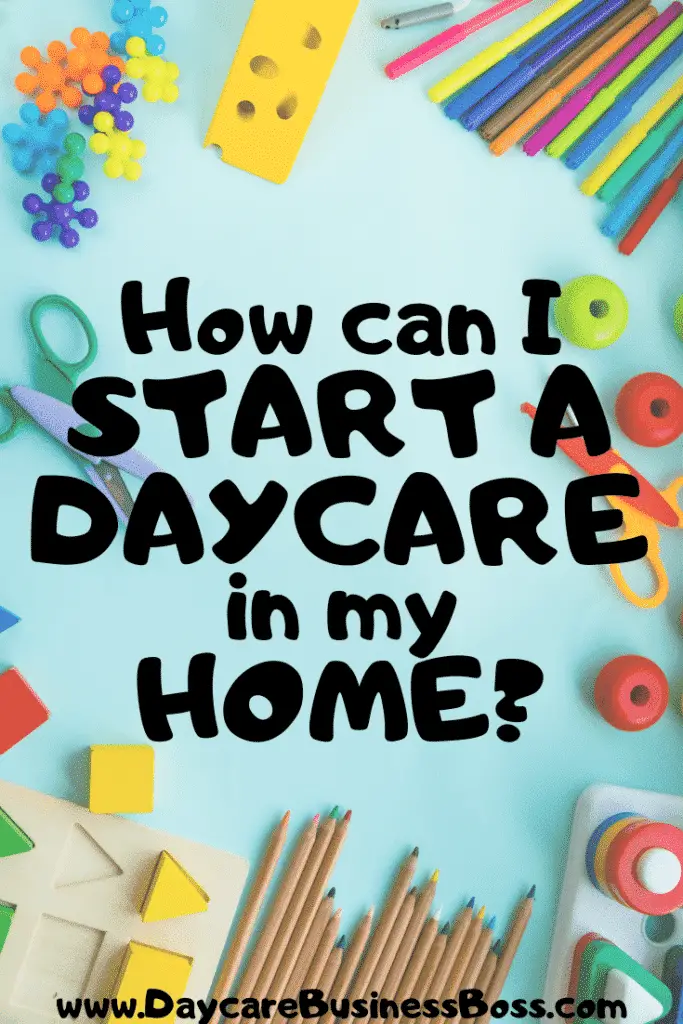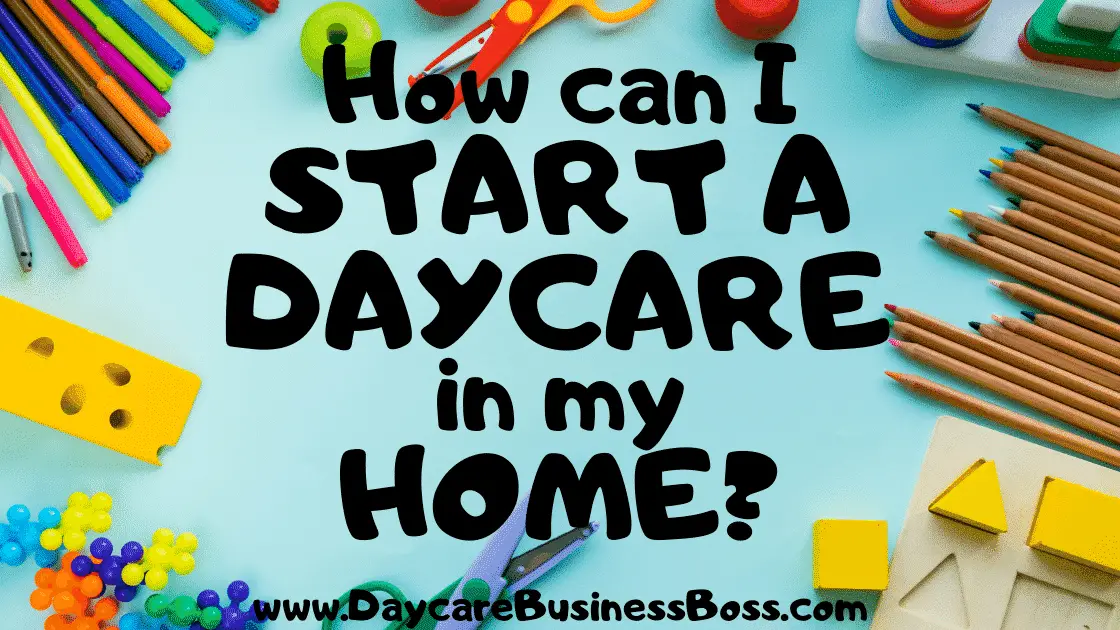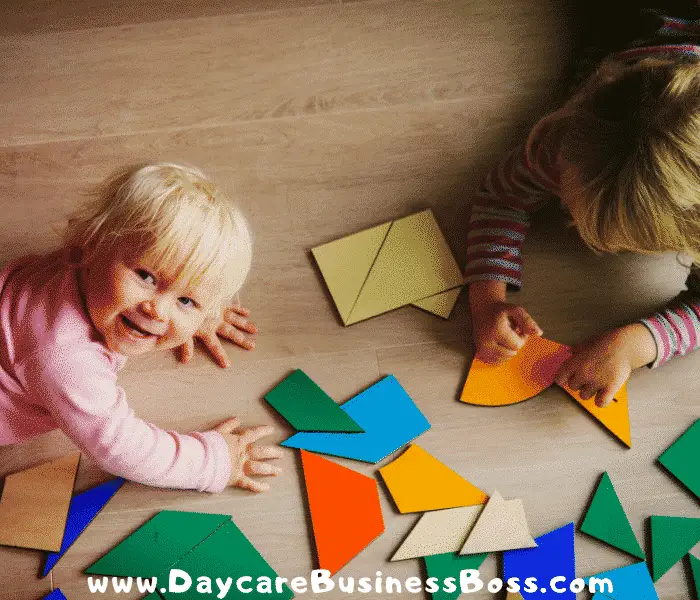Starting a daycare can be a great way to make money working from home, but there are a few things that you need to know before you get started. Experience working with children is just one of many prerequisites for a daycare provider to have, and while it is important, there are many other details you will need to be aware of.
When opening a home daycare, first you will want to create a business plan. Once that is completed, you will need to check local requirements and prepare your home for inspection so you can earn your state-mandated daycare license.
Some of these steps may seem intimidating to someone who is just starting out, but I promise you that your dream of opening your at-home daycare business is within your reach! Read on to get started.
Getting Down to Business…Planning
Before you begin this new adventure, it is important to be aware of your community’s current daycare needs. A little competition can be good for business, but you may find that there isn’t enough demand to keep your daycare profitable. Check to see how many daycare providers there are in your area, and see if they are still taking new clients, or if they are full to capacity. This will help determine if there is enough demand for you to open your new daycare. If there are other daycares close to you, find out what services they provide, and consider how you can compete with them. You may need to think of some unique ways to help your new business stand out above all the rest.
Once you have determined that your business can be profitable, it is time to write your business overview. This describes exactly who your daycare will serve and how you intend to accommodate them. While writing out your business overview, there are several things to consider. What ages will you provide care for? What will your hours of operation be? Who will be responsible for transporting the children to and from daycare? All of these important questions should be answered as you first begin planning.
The next important thing to consider is your budget. A business of any type has to watch their finances. This is to ensure that they are earning enough money to remain open and to make sure they are ready when it comes time to prepare their annual tax reports. My favorite way to budget is to use a spreadsheet program, such as Microsoft Excel or Google Sheets, in order to track spendings and profits. There are many free templates available online, or you can create your own. If you are not comfortable using spreadsheets, you can also purchase a specialized computer program that will help you set up an easy-to-use system to keep track of all of the money that goes into and out of your daycare. You will need to record every purchase you make that is related to your business, from cribs and toys to snacks and juice boxes. Other outgoing money to track may include the price of training classes you are required to take, licensing fees, insurance costs, and the amount of money you pay your employees (including yourself!). Some of these expenses may qualify you for tax deductions, so you will want to be sure to keep excellent records so you can take advantage of those write-offs when it’s time to prepare your taxes.
To balance these costs, you will want to keep track of any income you earn. Most of your income will come from enrollment fees, though you can charge extra for other services, such as transportation or extended hours. You can also apply for grants and hold fundraising events to help cover start-up costs and reduce registration fees, making them more competitive and possibly leading to increased enrollment.

The Low-Down on Laws and Licensing
Obtaining your daycare license is possibly the most important step in the process of opening your business. While every state has its own set of laws that daycare providers must follow, some of the more common requirements include First Aid and CPR training, daycare insurance, and regular home inspections. A visit to the National Database of Child Care Licensing Regulations website will provide you with the licensing contact information, regulations, and standards that your state requires.
You will need to have someone trained in CPR and First Aid on the premises at all times when children are present. Classes are readily available through the American Red Cross and the American Heart Association, though you can also check your area to see if your local community college or adult education programs offer training and certification. Cost varies, with certification through the American Cross starting at $70, though they do occasionally offer free classes during special events such as CPR/AED Awareness Week. No matter where you attend classes, be sure that you will earn a certificate upon completion of your training.
Insurance is important for an at-home daycare because it protects you and your home in the event of an injury or property damage incurred during the operation of your business. You will likely need liability insurance covering yourself, your employees, and your vehicle if you will be transporting children. You will also need property insurance to cover any damage to your home and to the items you use for your daycare business. Be aware that failure to obtain appropriate insurance may result in your license application being denied, and your current insurance provider could refuse to renew your current plan if you attempt to run a daycare out of your home before obtaining proper coverage. The requirements of your preexisting homeowner’s insurance may differ from those of your state, so your best course of action would be to familiarize yourself with local mandates, then contact your insurance agent for advice on how best to proceed.
Once all of your local requirements have been met, CPR and First Aid classes have been completed, and you have spoken to your insurance agent about getting proper coverage, there is one more step that must be completed before you can open your daycare business: The initial home inspection.
Acing the Inspection
Making sure your home is spick and span is a great place to start when preparing for your first inspection. Floors should be clean, bathrooms scrubbed, and no clutter should be left around, including knick-knacks, which should be put safely out of children’s reach, both to prevent breakage and to ensure that no little ones can put them in their mouths.
Once that is done, you will also need to childproof your home. If you have young children of your own, you may have already completed this step, at least partially, but you will still want to take the extra time to make sure everything is in order. The child locks on your cabinets, the baby gates on your stairs, and any cribs or other equipment you have obtained for your business will need to meet current safety specifications, and you will need to install doorknob covers or locks on all doors that your young clients should not have access to. All outlets should be covered, and electrical and window blind cords must be out of reach. You will need to be mindful of the placement of toxic plants, and pet dishes and litter in order to ensure that no children can get into them if you have them in your home. The inspector will also want to be sure no hazardous materials, such as cleaning supplies or medication, are accessible to children, and they will want to be certain that, if you own firearms, they are locked away with ammunition in a separate location.
After cleaning and childproofing, you will want to make sure you have all of the required safety equipment on hand. Smoke and carbon monoxide detectors should be in proper working order, and fire extinguishers should be accessible and up to date. You will want to have a list of emergency numbers, including the local police and fire departments, and the poison control center by the phone or saved in your cell phone’s contacts, and you should have an emergency escape plan mapped out and posted so you can practice fire drills. Your first-aid kit needs to be fully stocked, and you should check it regularly to ensure that you have everything you need, and no supplies have expired.
Finally, your backyard will need some attention. The play area should be fenced in, free of pet excrement, and it should contain safe, age-appropriate toys and equipment. Please note that, if you have a swimming pool, it must be completely inaccessible to children and it should not be used by your daycare clients.
Note that your state may have other requirements that you will have to meet during the inspection. It is always a good idea to ask for a checklist when you schedule your first inspection so you can ensure that your home is ready for this important step.
Once you’ve created your business plan, met your local requirements, and passed your first inspection to earn your daycare license, the fun part begins! Get creative with your marketing, and you’ll be enrolling clients and making money as a home daycare provider in no time!

Related Questions
How long will it take for me to get my license?
This depends on where you live, but the process generally takes about six months. Be sure to keep this in mind if you want to open your daycare at the start of the school year!
How often will my home be inspected?
Each state has its own regulations, but you should expect a visit at least once a year. Note that these inspections may be random and unannounced, so your best practice would be to go over your checklist regularly so you will be prepared.
Please note: This blog post is for educational purposes only and does not constitute legal advice. Please consult a legal expert to address your specific needs.
Check out our free ebook to begin your own daycare business! Click here for more information.


Meet Shawn Chun: Entrepreneur and Childcare Business Fan.
I’m a happy individual who happens to be an entrepreneur. I have owned several types of businesses in my life from a coffee shop to an import and export business to an online review business plus a few more and now I create online daycare business resources for those interested in starting new ventures. It’s demanding work but I love it. I do it for those passionate about their business and their goals. That’s why when I meet a childcare business owner, I see myself. I know how hard the struggle is to retain clients, find good employees and keep the business growing all while trying to stay competitive.
That’s why I created Daycare Business Boss: I want to help childcare business owners like you build a thriving business that brings you endless joy and supports your ideal lifestyle.




5 thoughts on “How Can I Start a Daycare In My Home?”
Comments are closed.